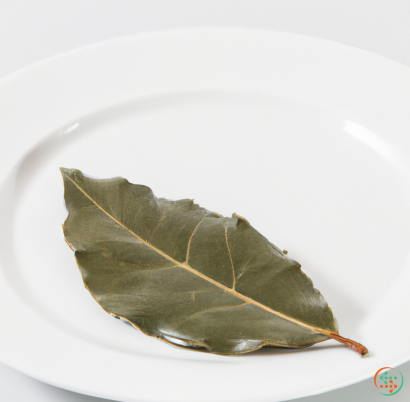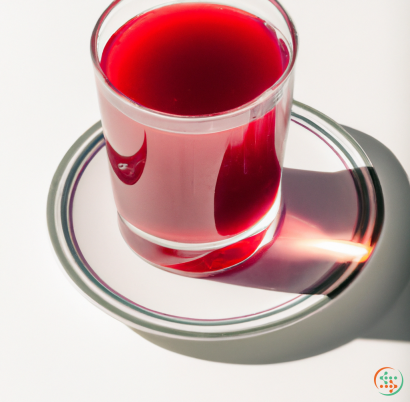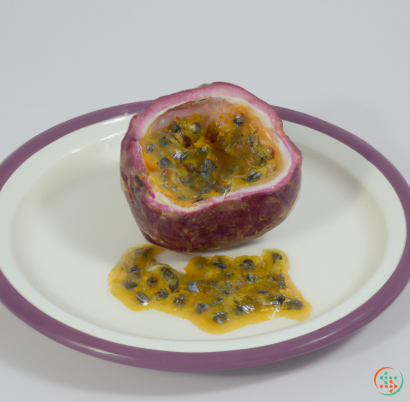Lemon Juice
Lemon juice is a tart, acidic liquid made from the juice of lemons. It’s commonly used in cooking and baking as a flavor enhancer or ingredient in a variety of dishes. But the benefits of lemon juice don’t stop there — it’s a powerhouse of nutrition and has many potential health benefits.
Nutrition in Lemon Juice
Lemons (Citrus limon) are full of nutritional value and provide a good source of many essential vitamins and minerals. A single cup (245 grams) of lemon juice contains:
• Vitamin C: 187% of the Daily recommended value
• Potassium: 9% of the Daily Value
• Fiber: 3 grams
• Protein: 2 grams
• Copper: 10% of the Daily Value
• Manganese: 5% of the Daily Value
• Thiamin: 4% of the Daily Value
• Vitamin B6: 4% of the Daily Value
• Folate: 3% of the Daily Value
• Magnesium: 3% of the Daily Value
• Calcium: 2% of the Daily Value
• Phosphorus: 2% of the Daily Value
Lemon juice is also a source of phytonutrients including flavonoids, terpenes and other antioxidants that can help protect against cell damage.
Health Benefits of Lemon Juice
Lemon juice has been used for centuries for both culinary and medicinal purposes. Today, research into the health benefits of lemon juice provides evidence that it could be beneficial in a variety of ways. Here are some specific examples.
1. May aid digestion: Lemon juice is high in citric acid which may stimulate the release of gastric juices. As a result, the juice may help to prevent indigestion or constipation and help food to move more quickly through the digestive tract.
2. May boost immunity: Lemons are a rich source of vitamin C, an antioxidant required for optimal immune health. Vitamin C may help to protect against infection and reduce inflammation.
3. May protect against heart disease: Lemons are a good source of potassium, which is known to have a beneficial effect on cardiovascular health. Potassium can help to lower blood pressure and improve the elasticity of arteries.
4. May help with weight loss: Lemons contain pectin, a type of fiber that helps to keep you feeling full and may reduce cravings between meals.
5. May help to reduce inflammation: Lemon juice contains compounds that may have anti-inflammatory properties and could help to reduce symptoms of inflammation-related diseases such as arthritis and asthma.
6. May help to balance pH levels: Lemon juice is highly acidic and therefore, may help to balance the body’s pH levels and reduce certain types of infections such as urinary tract infections.
7. May help to detoxify the liver: Lemon juice may be beneficial in flushing out toxins from the body and improving liver functioning.
Lemon Suggestions
To reap the most benefit, it’s best to consume freshly-squeezed lemon juice. Try drinking lemon juice diluted in a glass of warm water first thing in the morning or before meals.
It’s best to avoid adding sugar or sweeteners to lemon juice as this will add unnecessary calories and potentially reduce the health benefits. You can also use lemon juice in marinades, dressings, and cocktails.
Precautions
Lemon juice is generally considered safe for most people. However, it’s important to note that due to its high acid content, it can cause heartburn, gastroesophageal reflux disease (GERD), and other digestive issues. In addition, due to its high level of citric acid, it can also erode tooth enamel over time.
If you suffer from any digestive problems or have sensitive teeth, it’s best to dilute the lemon juice with water and drink it through a straw. You should also avoid drinking lemon juice prior to brushing your teeth.
Conclusion
Overall, lemon juice is packed with nutrition and provides a range of potential health benefits. While the juice may cause some minor side effects, when consumed in moderation, it should be a safe and healthy addition to a balanced diet.
Lemons have been around for centuries, enjoying centuries of culinary, medicinal and scientific use. But have you ever stopped to think about the entire process it takes to get a fresh lemon to your dinner plate? How do the lemons get to their final destination -– the kitchen table? From seed to juice, the journey of a lemon is long and complex, involving a range of players in the process, such as farmers, distributors, sellers and consumers. In this blog post, we’ll explore the fascinating journey of a lemon juice from the origin of the lemon tree to the final destination – the dinner plate.
The Lemon’s Origins
The first stop on the lemon’s journey is, of course, its origin. The lemon (Citrus limon) is a species of small evergreen tree native to Asia and capable of growing in many temperate climates. Lemons likely originated in Southeast Asia, India and other humid tropical regions, where they were cultivated long before recorded history, with ancient Sanskrit and Chinese texts referencing the fruit dating back as far as 2,500 years.
Farmers and Distributors
Once the origin of the lemons is established, we turn our sights to the farmers and distributors. These farmers are responsible for growing and harvesting lemons from the trees, either from commercial farms or from small organic farms. Fortunately, lemons are a hardy crop that can grow in both wet and dry climates, meaning the fruit can be grown in a variety of locations around the globe.
Since lemons are a popular commodity, it’s important for the farmers and distributors to find a way of getting them to their final destination quickly and safely. To do this, lemons are usually transported via trucks to nearby distribution centers, where they’re sorted, inspected and packaged.
From there, they typically move onto larger warehouses and ultimately, retailers where they can be found in the store. The entire process usually takes a few days.
Processing and Packing
Once the lemons arrive at the store, they’re unpacked and inspected one final time to make sure they’re of the highest quality. But before they’re placed in the produce section, the lemons have to be processed. To do this, the lemons are washed, then cut and put into sealed packages of different sizes – whole lemons, lemon slices, lemon wedges, etc.
Sellers and Consumers
Now we’re finally at the last step – the actual sale of the lemons. It’s the job of the store or retailer to offer customers lemons in an attractive package, at an affordable price. Once the lemons have been purchased by the consumer, they’re ready to be taken home and used in recipes.
Using the Lemon
Now that the lemons have made it to their final destination – the kitchen table. It’s time to figure out how to best use them. Many recipes today call for lemon juice, which has a variety of culinary and medicinal uses. To get the juice, you can cut the lemon in half and squeeze each half by hand. Alternately, you can use a lemon squeezer to make the job easier.
Once the juice has been extracted from the lemon, it can be used for all sorts of applications. You can use fresh lemon juice in a variety of dishes, from sauces and marinades to drinks and desserts. It can also be used to flavor and preserve many types of food, as well as to make a refreshing lemonade.
Moreover, lemon juice can also be used in a variety of medicinal and cosmetic applications. It has antibacterial, anti-fungal, anti-inflammatory and antioxidant properties, which makes it great for treating different skin issues like acne.
The Journey of Lemon Juice
To finish up, let’s take a look at the journey of lemon juice in more detail. From its origin in Southeast Asia to its final destination on your dinner plate, the journey of a lemon is far from simple.
First, farmers need to carefully cultivate and harvest the lemons. Then, the lemons have to be sorted, inspected and packaged before being transported to warehouses and stores. Once the lemons have arrived at the store, they’re processed, packaged and placed in the produce section, where consumers have the chance to purchase them.
Once the lemons have been purchased, they can then be taken home and used in a variety of culinary and medicinal applications. To extract the juice, you can cut the lemon in half and squeeze each half by hand or use a lemon squeezer. And with that, the journey of a lemon juice is complete – from seed to plate!
| Beta-Carotene | 0.001 mg | |
| Vitamin E | 0.15 mg | |
| Vitamin C | 0.0387 grams | |
| Vitamin B1 | 0.02 mg | |
| Vitamin B2 | 0.02 mg | |
| Vitamin B3 | 0.09 mg | |
| Vitamin B4 | 0.0051 grams | |
| Vitamin B5 | 0.13 mg | |
| Vitamin B6 | 0.05 mg | |
| Vitamin B9 | 0.02 mg |
| Calcium | 0.006 grams |
Daily Value 1.3 g
|
| Iron | 0.08 mg |
Daily Value 0.018 g
|
| Magnesium | 0.006 grams |
Daily Value 0.4 g
|
| Phosphorus | 0.008 grams |
Daily Value 1.25 g
|
| Potassium | 0.103 grams |
Daily Value 4.7 g
|
| Sodium | 0.001 grams |
Daily Value 2.3 g
|
| Zinc | 0.05 mg |
Daily Value 0.011 g
|
| Copper | 0.02 mg |
Daily Value 0.9 mg
|
| Manganese | 0.01 mg |
Daily Value 0.0023 g
|
| Selenium | 0.1 ug |
Daily Value 0.055 mg
|
| Glucose | 0.99 grams |
|
| Fructose | 1.1 grams |
|
| Sucrose | 0.43 grams |
|
| Total Sugars | 2.5 grams |
per 100g
|
| Capric acid (10:0) | 0.02 grams |
|
| Palmitic acid (16:0) | 0.01 grams |
|
| Total Saturated fatty acids: | 0.03 g | |
| Omega-3 Alpha-linolenic acid (18:3) | 0.01 grams |
|
| Linolenic acid (18:3) | 0.01 grams |
|
| Linoleic acid (18:2) | 0.01 grams |
|
| Total Polyunsaturated fatty acids: | 0.03 g | |







